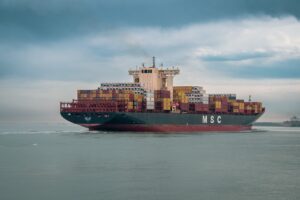Hello, transport enthusiasts and curious readers! Today, we’re diving deep into why transport companies have shifted from being just a cog in the economic machine to a crucial linchpin in our everyday lives. From delivering your latest online shopping splurge to ensuring that the local supermarket shelves are never bare, transport fleets are buzzing behind the scenes, making modern conveniences possible. But what’s it really like managing these fleets? Let’s explore the good, the bad, and the busy of this bustling industry.
A Look Back at the Evolution of Transport Companies
Stepping into our time machine and looking back, it’s clear that transport companies have come a long way from the rickety wagons and steam-powered ships of yesteryear. Remember when the most sophisticated tracking involved looking out your window and hoping to spot the delivery horse? Yeah, neither do I, but our forebears wouldn’t believe the logistics magic we pulled off today. Back in the day, the logistics were more about muscle and less about microchips, and the pace of deliveries was dictated by nature and horsepower (the actual horse kind!).
As the decades rolled on, the advent of the combustion engine and the expansion of road networks turbocharged the capabilities of transport companies. The mid-20th century introduced us to containerization—possibly the biggest game-changer in the transport sector—turning ships into movable warehouses and setting the stage for globalization. Imagine this: a single container could be lifted from a ship, plonked onto a truck or train, and sent off across continents without unpacking and repacking. It streamlined operations and slashed costs, laying the groundwork for the super-efficient systems we see today.
The Growing Demand for Transport Services
Let’s look at why transport companies have become more essential than ever. The explosion of e-commerce in the last decade has put logistics and transport at the forefront of business operations. Remember the last time you clicked ‘buy now,’ and your package magically appeared on your doorstep the next day? That’s these companies and their fleets working overtime to keep up with consumer expectations for speed and efficiency.
Moreover, the rise of global markets means products are now traveling further than a college student on a gap year. Thishas expanded the role of transport fleets to include not just local deliveries but also international logistics, requiring sophisticated coordination and management.
The Challenges of Fleet Management
Now, managing a fleet? That’s no small feat. It involves a complex dance of logistics, maintenance, compliance, and technology. Fleet managers often find themselves playing a juggling act with vehicle upkeep, driver schedules, and route planning. Plus, there’s the ever-present pressure to reduce costs while improving service quality. It’s a tough gig with high stakes because any delay or hiccup can ripple outward, affecting everything from customer satisfaction to the bottom line.
One of the biggest challenges is ensuring that all vehicles are properly maintained. A breakdown can lead to delayed deliveries, which not only costs money but can also damage a company’s reputation. Imagine a scenario where a delivery truck breaks down and a whole batch of perishable goods spoils. Not pretty, right?
Embracing Technology for Better Fleet Management
But it’s not all doom and gloom. The use of technology in managing transport fleets has been a game-changer. Enter the fleet dashboard, a tool as crucial as the steering wheel itself. This nifty piece of tech allows managers to track vehicles in real-time, monitor fuel usage, schedule maintenance, and much more. It’s like having a bird’s-eye view of your fleet, but without the feathers. By leveraging such tools, companies can anticipate problems before they arise, streamline operations, and enhance efficiency.
This tech infusion extends to communication improvements, too. Digital tools enable better coordination between dispatchers and drivers, reducing misunderstandings and improving response times. It’s a bit like having a group chat for your fleet, where everyone’s always in the loop.
The Pros of Modern Fleet Management
So, what’s the upside to all this complexity? First off, enhanced efficiency. Modern fleet management solutions have turned logistical nightmares into well-oiled machines. Companies can now deliver faster, with greater accuracy, and at a lower cost than before.
There’s also a big plus in terms of environmental impact. With better route planning and vehicle tracking, companies can reduce unnecessary mileage and fuel consumption, leading to lower emissions. It’s a win for the planet and a win for company budgets, as fuel is one of the largest expenses in transportation.
The Cons: It’s Not Always a Smooth Ride
On the flip side, the pressure to continuously adapt and invest in new technology can be a significant burden, especially for smaller operators. The upfront costs of sophisticated software and training can be steep. Additionally, the reliance on technology brings its own set of challenges, like cybersecurity threats and data privacy issues. After all, the more connected you are, the more vulnerable you might become.
Moreover, managing a large workforce of drivers, each with their own needs and concerns can be as tricky as herding cats. Labor issues, including disputes over pay and working conditions, can also take a toll on the overall operation and morale.

Final Thoughts: Steering Towards the Future
As we look to the future, the role of transport companies is only set to grow. The integration of AI and automation, along with advances in electric vehicle technology, promises to redefine what’s possible in fleet management. But one thing’s for sure: the human element remains irreplaceable. The decisions, the strategies, and the management will still need that personal touch—no robot can negotiate a snowstorm or a last-minute route change quite like a seasoned fleet manager.
In conclusion, while the journey of managing transport fleets isn’t without its bumps and bends, the destination—a world where goods move seamlessly from A to B—is definitely worth the ride. Whether you’re in the industry or just an interested observer, keeping an eye on these developments is bound to offer insights into how the backbone of our global economy is shaping up to meet the challenges of a new era. Happy travels on the information highway!
Want More Info? How about a Free 30-minute Consult with Ascend?
Schedule My Free Consultation Now!
Special thanks to the following source(s) for the image(s) used in this article:
Enjoy a Great Podcast? ?
Check out this Remarkable episode to continue the conversation and help you grow!

How to Stop Feeling Numb & Unlock Your Subconscious with Yvonne Trost (S13 E2)
"Your mind, body, spirit, and soul cannot be compartmentalized. They all impact one another." ~ Yvonne TrostWATCH THE PODCAST Click the play button ▶️ above 👆 to watch now! Please Note: You can skip any ads after 5-seconds by clicking, "Skip Ad" in the bottom-right corner of the video window. These are not ads we control, or necessarily endorse. They are delivered by the video hosting company, YouTube or Rumble. Thank you for understanding. LISTEN TO THE PODCASTEpisode Proudly Sponsored...
 Listen Now!
Listen Now!
THANKS FOR LISTENING TO THE REMARKABLE PEOPLE PODCAST! ?
Click Here for More Remarkable Episodes on Almost Any Topic You Can Imagine.?
DISCLAIMER: This is an affiliate article. We post affiliate articles with the intent of helping you grow. They are not written, researched, or necessarily endorsed by our team. They are simply content submitted to us by what appears to be respectable affiliate sources, people, and organizations, which upon initial review, seem solid and helpful to our community, so we post them. It is up to you to personally verify the facts, links, organizations mentioned, the validity of the information presented, and any/all claims made in the article(s). To report an issue with any of the information, links, or organizations mentioned in this, or any content posted on our website, or if you simply have a question or need something we can help you with, please contact us now.






